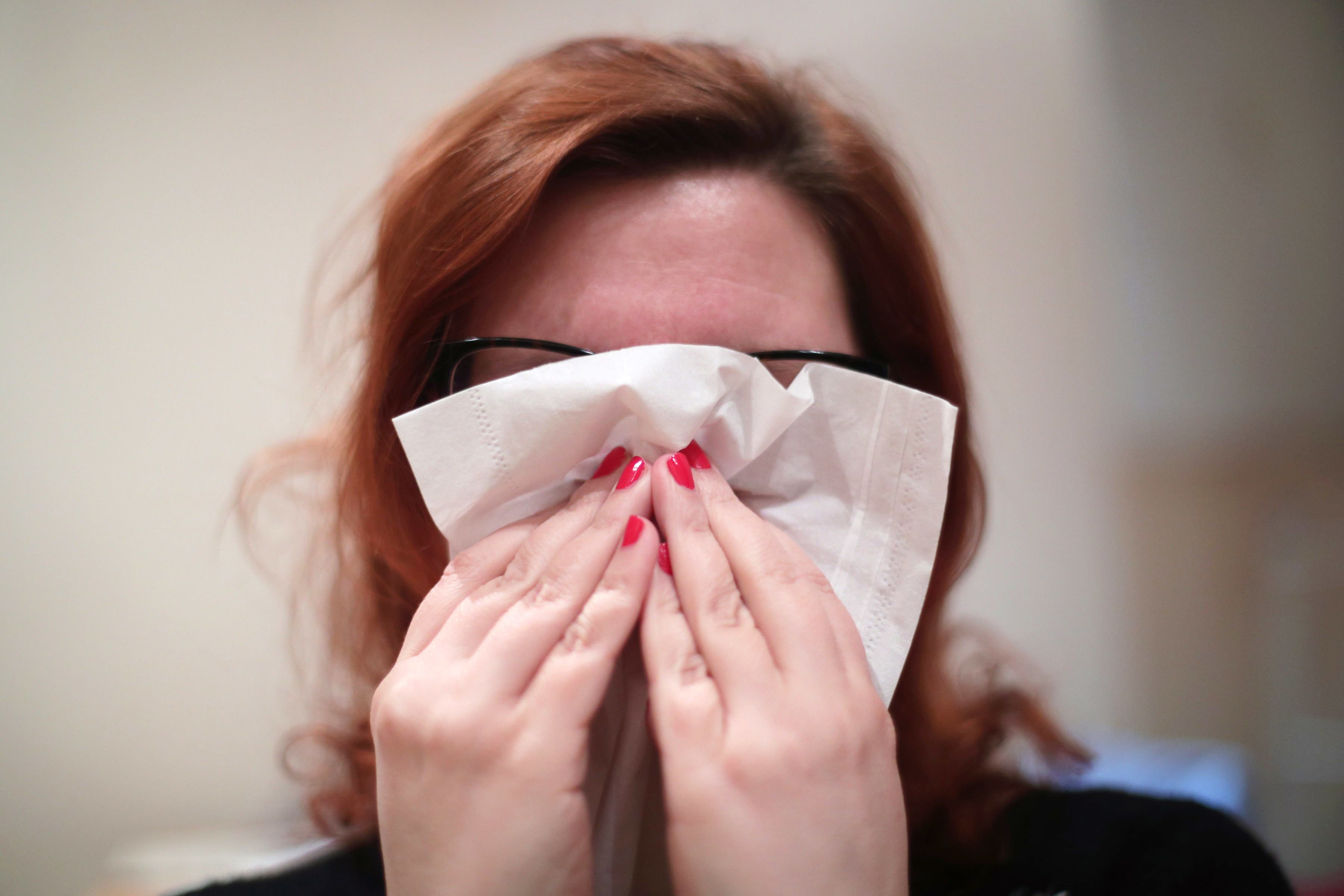Over-the-counter nasal sprays may keep coughs, colds and flu at bay, trial shows
Gel and saline sprays reduced the days of illness by around 20%, scientists said.

Your support helps us to tell the story
From reproductive rights to climate change to Big Tech, The Independent is on the ground when the story is developing. Whether it's investigating the financials of Elon Musk's pro-Trump PAC or producing our latest documentary, 'The A Word', which shines a light on the American women fighting for reproductive rights, we know how important it is to parse out the facts from the messaging.
At such a critical moment in US history, we need reporters on the ground. Your donation allows us to keep sending journalists to speak to both sides of the story.
The Independent is trusted by Americans across the entire political spectrum. And unlike many other quality news outlets, we choose not to lock Americans out of our reporting and analysis with paywalls. We believe quality journalism should be available to everyone, paid for by those who can afford it.
Your support makes all the difference.Using nasal sprays at the first sign of a sore throat, cough, cold or flu could stop full-blown symptoms from developing and help speed up recovery, according to the largest trial of its kind.
Data from nearly 14,000 adults has shown over-the-counter gel and saline sprays cut the number of days spent feeling ill with sinus and chest infections, flu and cold by around 20%.
The benefits were greater for those who used the sprays around six times a day, the researchers said.
People using nasal sprays were also less likely to be prescribed antibiotics compared to those receiving the usual standard care, they added.
The team said its findings could offer a cheap and easy way to stop people from falling severely ill with respiratory infections.
Our results show nasal sprays work well to reduce the duration and severity of respiratory infections
Paul Little, professor in primary care research from the University of Southampton, who led the trial, said: “Given these results, our advice, particularly for those at higher risk from infections or those who get recurrent infections, is at the first sign of cough, sore throat, cold or flu-like symptoms, use a nasal spray to prevent it from developing fully, and to use the sprays preventatively after close exposure to people with infections.”
For the study, which was funded by the National Institute for Health and Care Research (NIHR) and published in the journal The Lancet Respiratory Medicine, the researchers recruited 13,799 patients from 332 GP surgeries.
All patients either had an existing health problem, had respiratory infections in the past, or were at high risk of infection.
Patients were randomly assigned to receive either a Vicks-First-Defence gel-based nasal spray, a saline liquid-based nasal spray, or an online resource that helps people with respiratory illnesses with exercise and stress levels.
Compared to the usual standard care, which involved getting NHS advice on how to manage respiratory illnesses, the sprays cut the number of days taken off work or other activities by up to 30%, the researchers said.
Meanwhile, stress management and exercise online advice reduced the incidence of infections by a modest 5%, the team added.
Prof Little said: “Our results show nasal sprays work well to reduce the duration and severity of respiratory infections, and the interference with normal activities, which is particularly important in light of the winter infection surge the UK regularly experiences.
“The important finding of a reduction in the use of antibiotics is also potentially very important in the fight against antibiotic resistance, one of the major public health threats of our time.”
Lucy Yardley, professor of health psychology at the Universities of Bristol and Southampton, who led the nasal spray part of the study, added: “Our analysis suggests that the benefits were even greater when people used the sprays more often – we advised six times a day at the first sign of a cold – but many people in the study did not use the spray that often.”